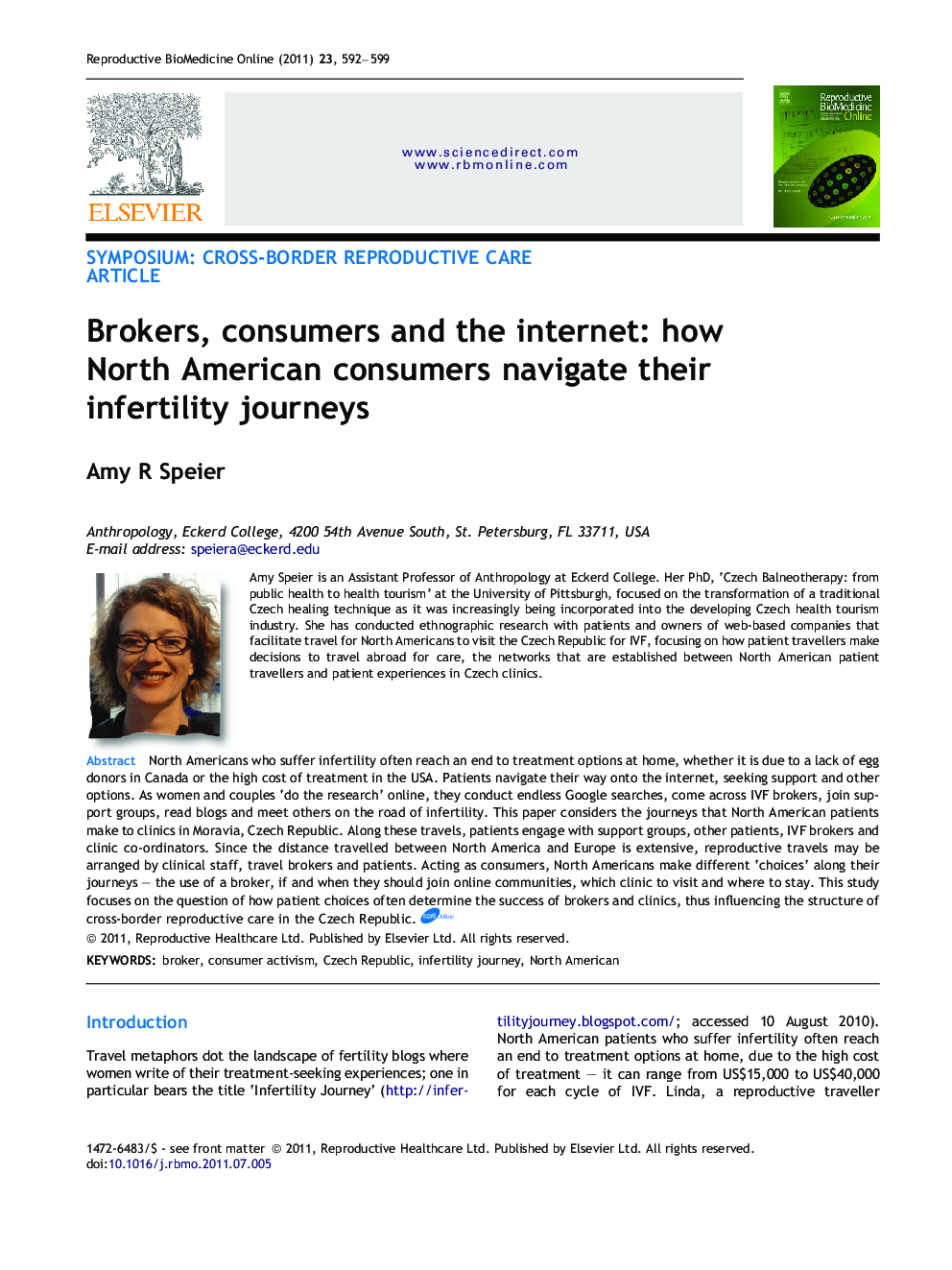| Article ID | Journal | Published Year | Pages | File Type |
|---|---|---|---|---|
| 3971334 | Reproductive BioMedicine Online | 2011 | 8 Pages |
North Americans who suffer infertility often reach an end to treatment options at home, whether it is due to a lack of egg donors in Canada or the high cost of treatment in the USA. Patients navigate their way onto the internet, seeking support and other options. As women and couples ‘do the research’ online, they conduct endless Google searches, come across IVF brokers, join support groups, read blogs and meet others on the road of infertility. This paper considers the journeys that North American patients make to clinics in Moravia, Czech Republic. Along these travels, patients engage with support groups, other patients, IVF brokers and clinic co-ordinators. Since the distance travelled between North America and Europe is extensive, reproductive travels may be arranged by clinical staff, travel brokers and patients. Acting as consumers, North Americans make different ‘choices’ along their journeys – the use of a broker, if and when they should join online communities, which clinic to visit and where to stay. This study focuses on the question of how patient choices often determine the success of brokers and clinics, thus influencing the structure of cross-border reproductive care in the Czech Republic.North Americans who suffer infertility often reach an end to treatment options at home, whether it is due to a lack of egg donors in Canada or the high cost of treatment in the USA. Patients navigate their way onto the internet, seeking support and other options. As women and couples ‘do the research’ online, they conduct endless Google searches, come across IVF brokers, join infertility support groups, read blogs and meet others on the road of infertility. This paper will consider the journeys North American patients take to clinics in Moravia, Czech Republic. Along these travels, patients engage with local and cyber support groups, other patients, IVF brokers and clinic coordinators. Since the distance travelled between North America and Central Europe is extensive, reproductive travels may be arranged by clinical staff, travel brokers and patients. Acting as consumers, North Americans make different ‘choices’ along their journeys – the use of a broker, if and when they should join on-line communities, which clinic to visit and where to stay. Connections are established among North Americans as they spend time together in Czech clinics and accommodations. In these meetings, new paths of knowledge and migratory pathways are carved. This essay focuses on the question of how patient choices often determine the success of brokers and clinics, thus influencing the structure of cross-border reproductive care in the Czech Republic.
